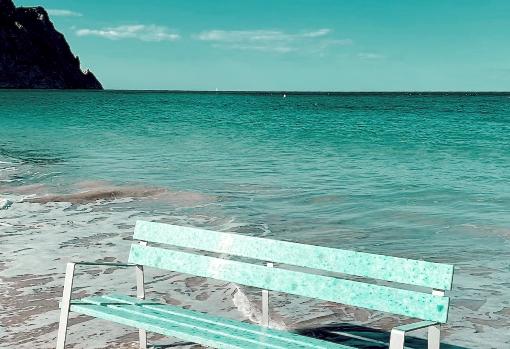The appearance of SARS-CoV-2 has changed the way of relating, consuming and also paying. Plastic money has become the favorite payment method for Spaniards in recent months. The card is the preferred option even for the smallest purchases that were previously solved with a few coins and bills.
This height is reflected in the more than 85 million credit and debit cards in Spain and which are renewed every five years. Expiration date that ends with them cut and in the garbage can. "Awareness and education in citizenship is necessary", explained Ricardo Alonso, commercial director of Giesecke + Devrient (G + D) for the region of Spain, Portugal and Israel.
"Few people know that they are electronic waste and have a special treatment," he adds.
These devices "have a metal part that is the chip," says Alonso, and "they also incorporate an antenna that is welded to the plastic of the card," he adds. The question remains: «Where can it be recycled?».
The answer is complicated, because "there is still no technology available in the recycled plants to separate the PVC from the antenna", highlights the director of sales of G+D for Spain. For this reason and to avoid generating more waste, banking entities have brought sustainability to their credit cards. "In these products, there are normally about 5 grams of plastic and in Spain there are about 86 million cards, he calculates tons," says Alonso. 430 tons are the result.
Credit and debit cards are electronic waste and should be taken to the nearest clean point
Pieces of plastic that end up in rubbish bins, "although more and more banks are working to prevent this from happening," he revealed. In recent months, Banco Santander has also installed a system in ATMs to detect expired cards and "then they arrive at our facilities," says Alonso. "Even with those returned by Correos." However, if they cannot be recovered, the most appropriate way to recycle them is to deposit them at the collection point, as is the case with other electronic devices. "Recycling the cards has made it possible to reuse nearly 1.200 kilos of plastic waste," explained BBVA.
recycled PVC
But, before reaching the pockets of customers, the banking sector "is aware of sustainability," says Alonso. For several years now, "several of our clients have been incorporating recycled PVC into their cards," he adds. "It is the alternative with the lowest carbon footprint and made with recycled materials, from sources such as waste from the construction industry, recycling of plastic bags or waste from other cards," he replies from Caixabank.
"The entire banking sector as a whole is betting hard on sustainability," highlights the sales director of G+D for Spain. However, "there are other solutions beyond recycled PVC," warns Alonso.
"Recycled PVC is the best solution for credit cards at the moment" Ricardo Alonso, commercial director of Giesecke+Devrient (G+D) for the region of Spain, Portugal and Israel
Several entities, including Caixabank, work with biodegradable products that change plastic for corn starch or PLA, polylactic acid. The latter is a bioplastic that arises precisely from the union of biomass with this corn starch. Its manufacturing process is different from the usual one and, of course, it reduces the CO2 emitted into the atmosphere by half. The result is a product with two years of useful life and more ecological.
"We are working on several lines," says Alonso. However, "many factors must be taken into account, such as the carbon footprint of the entire process, the waste they generate or durability," he warns. In this case of this project of the Catalan entity, the objectives of the PLA have an expiration of two years. "For this reason, we think that recycled PVC is, at the moment, the solution", Alonso points out.
second Life
Environmental protection is a key issue in financial sector policies. "They are like an elephant, it is difficult to start but then they are unstoppable," says Alonso. "All banks have a very clear agenda that they have to make this change," she added.
At the end of the year, the industry-led Net-Zero Banking Alliance, convened by National Unions, will come together to get banks from around the world, representing about 40% of the world's bankers, to commit to aligning its loan and investment portfolios with net zero emissions by 2050.
An initiative that counted in April, date of its foundation, with four Spanish banks: BBVA, Santander, Caixabank and Ibercaja. But, "they have been working on it for two years," says Alonso.
In 2019, the Portuguese subsidiary of the entity chaired by Ana Botín joined Contisystems to launch a project for recycling means of payment in urban furniture such as benches, pool decks or elements of promenades. Now, this measure alleges Spain.
 Recycled bench on the beach. – Gravity wave
Recycled bench on the beach. – Gravity wave
"We want to make large furniture that does make sense to work on a large scale," says the sales manager of G+D who will work with the Spanish entity. The cards collected at the bank's ATMs will be sent to the German firm that will shred them for later conversion into street furniture. "With the collection of 400.000 recycled cards, which would be equivalent to two tons of recycled PVC, 130 public benches could be created," Alonso revealed.
The material of these cards will become raw material that will be used by the Alicante company Gravity Wave for the manufacture of furniture. Finally, Banco Santander will donate these buildings to the Valencia City Council for installation in the Turia capital.
